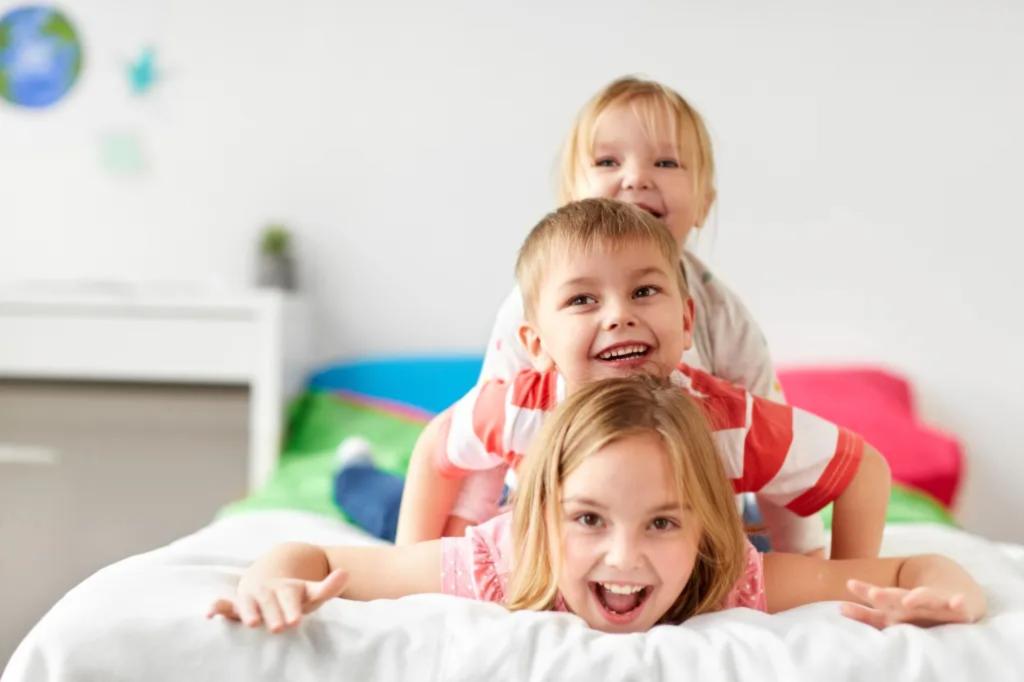Ever looked at your kids and thought, “How did they all come from the same womb?”
Turns out, birth order might have something to do with it. Psychologists have long studied how your place in the family lineup can influence everything from personality to career choices – and while it’s not an exact science, the stereotypes? Alarmingly accurate.
Firstborn: The mini-adult in training
If your eldest has been acting 35 since the age of five, you’re not alone. Firstborns are often described as responsible, conscientious, and achievement-oriented – mostly because they had no choice. Psychologist Alfred Adler was one of the first to suggest that birth order impacts personality, and he pegged firstborns as natural leaders with a strong sense of duty.
Modern researchers, like Frank Sulloway, have built on this, arguing that firstborns are more likely to conform to expectations, do well in school, and take on leadership roles. Translation? They’re the ones who organise the group assignment – and do all the work.
They’re also often the “guinea pig” of the family, raised with all the rules and none of the chill. It makes sense they turn out a little bossy. (Or as they prefer to call it: organised.)
Classic firstborn traits: Responsible, cautious, slightly smug about bedtime routines.
Middle child: The peacekeeper (or the mystery)
The middle child has long been considered the wildcard of the family. Depending on how many siblings there are, they’re either the easygoing diplomat… or the one who quietly disappears into the background and re-emerges years later with a sleeve tattoo and a girlfriend named Ziggy.
Psychologically, middles are often said to be adaptable, cooperative, and skilled negotiators — mostly because they grew up negotiating for space, snacks, and screen time between two louder siblings. They may not get the spotlight, but they usually get along with everyone.
Pop culture tends to paint them as overlooked, but research suggests that middle children are often the most empathetic and socially skilled. Probably because they’ve spent their whole life trying to keep the peace at the dinner table.
Classic middle child traits: Easygoing, diplomatic, suspiciously quiet during family arguments.
Youngest child: The charming chaos goblin
Youngest children are the moment — and they know it. Often described as outgoing, attention-seeking, and a little rebellious, they’re the free spirits of the family. Alfred Adler suggested that because the baby of the family never gets dethroned, they tend to be more indulgent and less disciplined. (Aka, they got away with everything.)
Modern studies back this up, with some evidence suggesting youngest children are more likely to take risks and pursue creative careers. Or, you know, live off vibes and charisma until they’re 32.
They’re also usually the funniest. (Don’t argue — just ask any youngest child, they’ll tell you. Loudly.)
Classic youngest child traits: Fun, fearless, and always being called the “spoilt one” by their siblings.
Only child: The firstborn turned up to 11
Only children often get lumped in with firstborns — but with no siblings to compete with, they tend to take their eldest child traits to the extreme. Think: mature, self-motivated, and just a bit intense about fairness.
They’re used to adult company, which often makes them articulate and confident… but also prone to perfectionism and the occasional existential meltdown if someone eats the last of their favourite snacks.
Pop culture loves to label them as bossy or socially awkward, but research actually shows only children tend to be high achievers, strong leaders, and pretty emotionally stable. Plus, they never had to fight anyone for the front seat.
Classic only child traits: Independent, articulate, knows exactly how they like their eggs.
So… is any of this actually true?
Like anything in parenting, birth order theory isn’t one-size-fits-all. Family dynamics, parenting style, gender, age gaps, and even cultural background all play a role in shaping who your kids become.
That said, a lot of parents do notice distinct personality differences between their kids – and birth order can be a fun lens to look through, especially when your youngest is launching a glitter-based protest over bedtime and your eldest is colour-coding the morning routine.
It’s not about labelling your kids – it’s about understanding how their place in the family might shape the way they see the world… and maybe cut your middle child some slack if they start referring to themselves as “the forgotten one.”
Birth order isn’t destiny – but it sure makes for some uncanny parenting observations. Whether your kids are ticking all the boxes or completely defying the trend, it’s worth having a laugh (and maybe a minor existential crisis about your own sibling role) along the way.
Read the full article here







